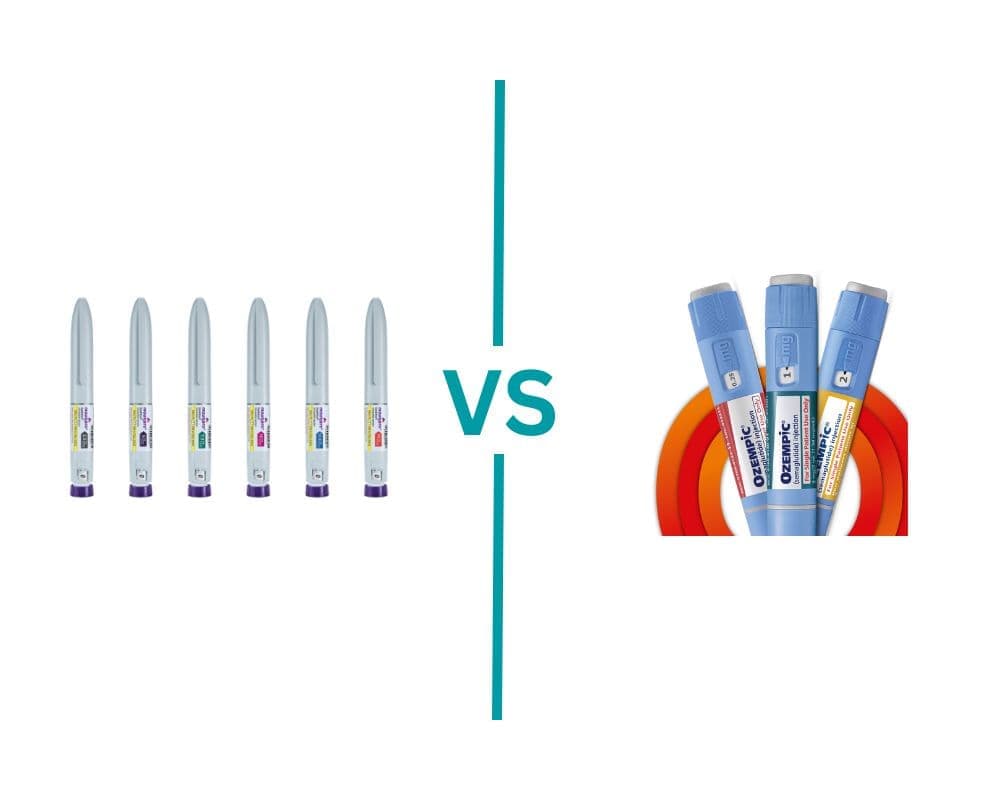If you’re looking to lose weight then medication like Mounjaro and Ozempic can help you to do so more effectively – and more sustainably – than just dieting and making lifestyle changes.
In this guide we’ll tell you everything you need to know about the differences between Mounjaro and Ozempic, so if you have any questions then keep reading.
Alternatively you can use our free online assessment to learn which weight loss treatments you’re eligible for, and which ones our expert weight loss clinicians would recommend for you. Some medications can help you achieve up to 26% weight loss.
